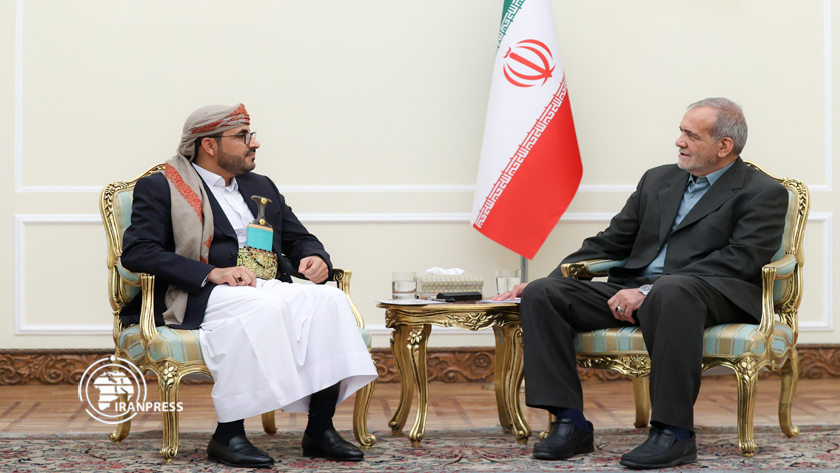Newly-Elected Iranian President Advocates for Unified Muslim Front in Meeting with Yemen’s Ansarullah Spokesman
In a significant diplomatic encounter, Iran’s newly-elected president met with Mohamed Abdel-Salam, the spokesman for Yemen’s Ansarullah resistance movement, in Tehran. The meeting underscored the pivotal geopolitical relationships in the Middle East and highlighted the potential for increased cooperation between Iran and Yemen.
Yemen’s Support for Palestine
During the meeting, the Iranian president praised Yemen’s actions in support of the Palestinian cause. He noted that these actions have effectively exerted pressure on the Zionist entity and its supporters. This acknowledgment comes amid heightened tensions in the region, specifically relating to the Israeli-Palestinian conflict, which has seen various uprisings and military engagements over the past few years.
"The steadfastness of the Yemeni nation in the face of pressures and the enmities of the arrogant powers is very valuable and commendable," the Iranian president remarked, reiterating Yemen’s resilience despite facing immense external pressures and challenges.
The Call for Muslim Unity
A significant part of the discussion revolved around the unity among Muslim countries. The president emphasized that if Muslim nations unite and work in coordination, they can thwart the plots of their enemies. This call for unity resonates deeply within the current political framework of the Middle East, where sectarian divides and foreign interventions have significantly impacted regional stability.
"Unity and cohesion strengthen the power of Islamic countries," he stated, urging for enhanced solidarity among Muslim nations to confront common adversaries and challenges.
Strengthening Iran-Yemen Relations
Touching on bilateral relations, the president expressed hope for stronger Tehran-Sana’a ties in the future. Mohamed Abdel-Salam reciprocated this sentiment, highlighting the deep-rooted and strong connections between Yemen and Iran. He arrived in Tehran to participate in the president’s swearing-in ceremony, marking the significance of this diplomatic visit.
Abdel-Salam expressed optimism about expanding cooperation between the two nations to serve mutual interests. He reaffirmed Yemen’s commitment to coordination with Iran in various fields to tackle shared challenges. This cooperation is particularly vital given the ongoing humanitarian crisis in Yemen due to the protracted conflict that has resulted in widespread devastation and civilian suffering.
Yemen’s Stance on Israeli Aggression
Separately, in comments made to the al-Masirah television network, Abdel-Salam underscored Yemen’s readiness to defend Lebanon against aggressors amid Israeli threats. He made it clear that Yemen’s position on any Israeli aggression toward Palestine or Lebanon remains unequivocal.
Yemen’s stance is rooted in the broader context of regional dynamics, where various non-state actors and resistance movements play crucial roles in the geopolitical landscape. This regional solidarity is pivotal in the face of common threats that challenge the stability and sovereignty of Middle Eastern nations.
Conclusion
This meeting between Iran’s newly-elected president and Yemen’s Ansarullah spokesman not only emphasizes the strategic alliance between the two nations but also highlights the broader call for unity among Muslim countries. The continued cooperation and resolute stances against common adversaries point to a more consolidated effort in addressing regional conflicts and fostering Middle Eastern resilience.
For further updates on this developing story and other related diplomatic engagements, keep visiting our website.
If you want to explore more about the official stances and recent activities of the Iranian presidency, visit the official website.
